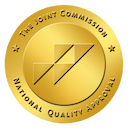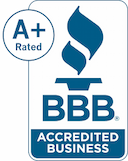Inpatient & Outpatient Rehab Near Arizona
Addiction can be devastating, but it is a treatable condition. Making the courageous decision to begin treatment is the first step toward a healthier, more fulfilling life—the kind that can lead to restored relationships and improved physical and mental well-being.
Consider making the short trek from Arizona to Las Vegas, Nevada for quality, evidence-based treatment at Desert Hope Treatment Center.
Alcohol & Drug Rehab Facility Near Arizona
Types of Addiction Treatment Near Arizona
Treatment is never one-size-fits-all.1 This is why Desert Hope provides each one of its patients with a personalized treatment plan suited just to their needs.
Desert Hope Treatment Center offers a wide range of care that can help you or your loved one address and recover from a substance addiction issue.
The levels of addiction treatment available at Desert Hope include:
- Medical detox. Medically assisted detox enables patients to safely get through withdrawal as comfortably as possible.
- Inpatient care. In a residential or inpatient treatment program, patients benefit from the 24/7 support of treatment staff.
- Partial hospitalization program (PHP). With PHP, patients visit Desert Hope a minimum of 5 days a week for treatment but do not live at the facility.
- Intensive outpatient program (IOP). A step down from PHP, IOP requires patients to visit the facility at least 3 times a week.
- Standard outpatient care. Standard outpatient treatment only requires patients to visit the facility several times a week, affording more flexibility while still providing the support patients need.
- Sober living. After completing formal treatment, many patients benefit from staying in the safe, supportive, and sober environment provided at Resolutions Las Vegas, our nearby sober living facility.
These various types of rehab may involve behavioral therapy, medication (if appropriate), peer support, and co-occurring disorder treatment.
Desert Hope also offers specialized treatment programs for Veterans and first responders, as well as an LGBTQ+ program and a trauma-informed program.
Covering the Cost of Addiction Treatment
The cost of rehab can depend on a variety of factors, including the level of treatment, whether someone has health insurance, their individual health insurance policy details, and more.
Desert Hope accepts insurance coverage from many major insurers, including:
Call to start treatment today. Compassionate admissions navigators at Desert Hope can help you go over all the different ways to pay for rehab. You can also verify your insurance coverage using the confidential .
A customized treatment plan will be made to suit your needs after a thorough interview. You will then travel to your treatment facility and begin your life-changing care.
How to Get to Desert Hope from Arizona
Desert Hope inpatient rehab in Las Vegas is a great choice for addiction treatment in the neighboring state of Nevada—under 5 hours away from Phoenix, Arizona.
Addiction Self-Assessment
Arizona Addiction Statistics
Nearly 80,000 patients were enrolled in a substance abuse treatment program in Arizona on a single day count in 2019.2 Among the people who were enrolled in an Arizona substance use treatment facility in 2019, 16.3% were receiving treatment for alcohol use only, 42.9% were receiving treatment for drug use only, and 40.9% were being treated for both drug and alcohol use.2
Alcohol Abuse & DUIs in Arizona
In 2020, an estimated 17% of Arizona adults engaged in binge drinking (4 beers on one occasion for women or 5 beers for men).3
Between 2016 and 2020, alcohol-impaired driving deaths in Arizona made up 22% of all motor vehicle crash deaths in the state. By comparison, alcohol-impaired driving deaths made up 27% of all motor vehicle deaths across the U.S. that same year.3
Drug Use & Overdoses in Arizona
Drug overdose—particularly ones involving opioids—is a significant concern in Arizona. According to the Arizona Department of Health Services (ADHS), more than 5 people die every day in Arizona of an opioid overdose.4
In 2021, more than 2,000 Arizona lives were lost to opioid overdose deaths.4 Fentanyl—a powerful synthetic opioid—was involved in most cases.5 Additionally, there were over 52,000 opioid overdose-related hospitalizations in 2021.5



